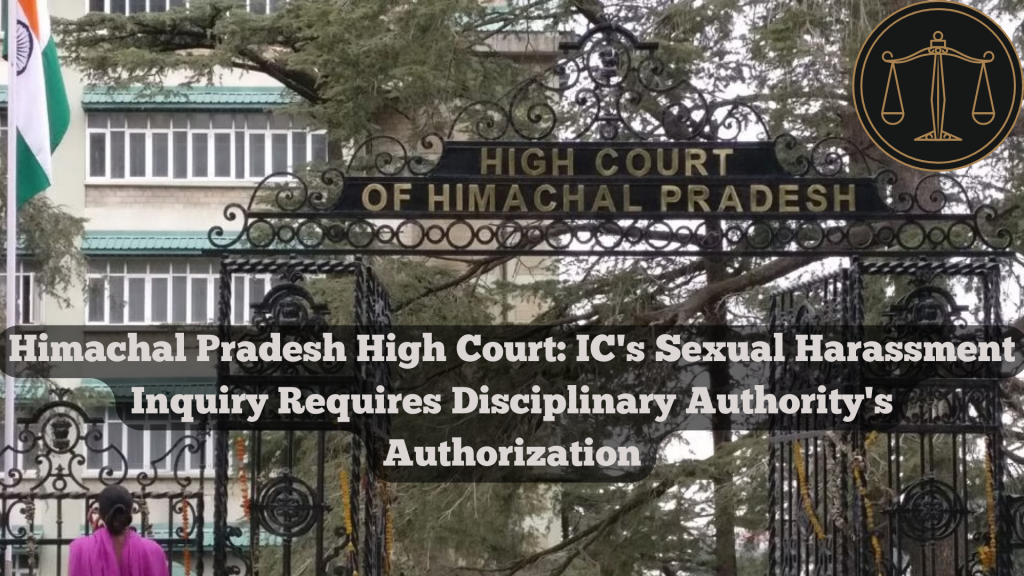
Himachal Pradesh High Court: IC’s Sexual Harassment Inquiry Requires Disciplinary Authority’s Authorization
Judgement Given On :
In a significant legal decision on September 10, 2021, the Himachal Pradesh High Court addressed a crucial aspect of sexual harassment inquiries. The court ruled in the case of PKT vs. State of Himachal Pradesh and Ors. that an Internal Committee (IC) does not possess the unilateral authority to initiate an inquiry without prior approval from the Disciplinary Authority. This ruling was based on a careful examination of the Central Civil Services (Classification, Control and Appeal) Rules 1965, an Office Memorandum from the Government of India, and a circular issued by the Government of Himachal Pradesh.
Case Background:
The case revolved around a complaint of sexual harassment filed against an Additional Superintendent of Police (“Petitioner”). The Internal Committee of the Police Department, Shimla (“Respondent”), initiated an inquiry by issuing a memorandum against the Petitioner.
Authority to Commence Inquiry:
The central legal issue was whether the IC possessed the authority to initiate an inquiry independently or if it required prior consent from the Disciplinary Authority.
Legal Arguments:
- The Petitioner contended that the memorandum issued by the IC violated the Central Civil Services (Classification, Control and Appeal) Rules, 1965, the Office Memorandum, and the Circular.
- The Respondents argued that the inquiry adhered to the prescribed Standard Operating Procedure No. 580 of 2017, the CCS (CCA) Rules, and the Sexual Harassment of Women at Workplace (Prevention, Prohibition and Redressal) Act and Rules, 2013.
Court’s Ruling:
The High Court conducted an exhaustive analysis of the CCS (CCA) Rules, the POSH Act and Rules, the Office Memorandum, the Circular, and the Standard Operating Procedure. It delineated a two-stage process for IC involvement:
- First Stage – Fact-Finding Inquiry/Investigation: During this phase, the IC conducts an investigation to determine the veracity of the allegations through document collection and witness statements.
- Second Stage – Formal Inquiry: If the Respondent contests the charges and the response is deemed unsatisfactory by the Disciplinary Authority, a charge sheet is issued under the CCS (CCA) Rules. The IC then proceeds with a formal inquiry.
The court underscored that the IC’s role at the first stage is limited to fact-finding and does not grant it the authority to independently initiate a formal inquiry. The initiation of a formal inquiry is exclusively within the jurisdiction of the Disciplinary Authority.
Legal Implications:
This landmark ruling provides clarity on the procedural framework governing IC inquiries into allegations of sexual harassment. It firmly establishes that the IC cannot autonomously initiate a formal inquiry and underscores the pivotal role of the Disciplinary Authority in this process. By ensuring that formal inquiries adhere to established legal protocols, this decision upholds the rights of the accused in such cases, safeguarding due process.
